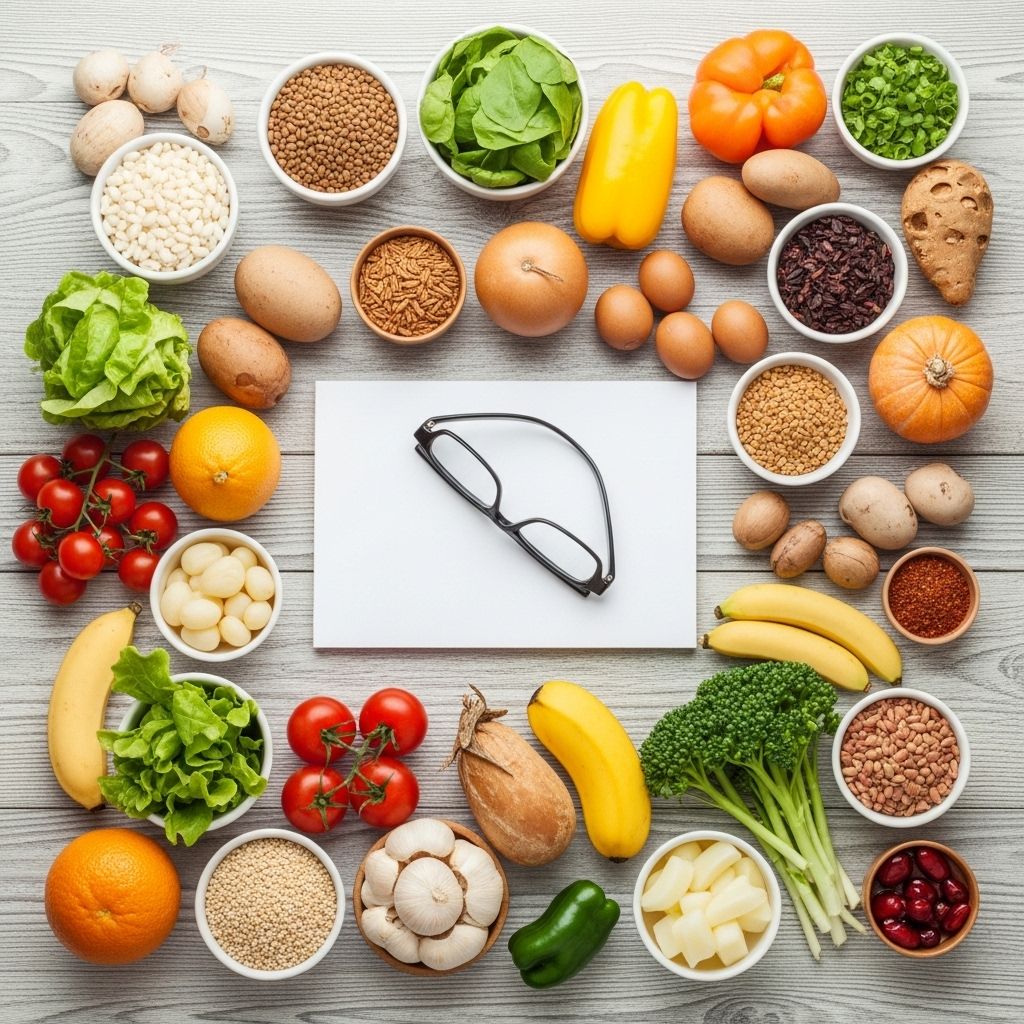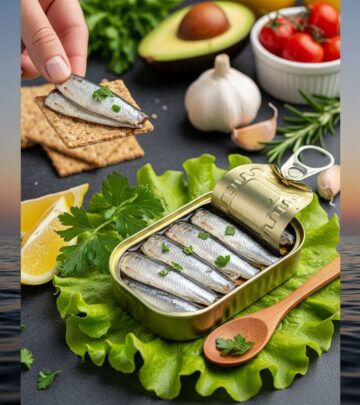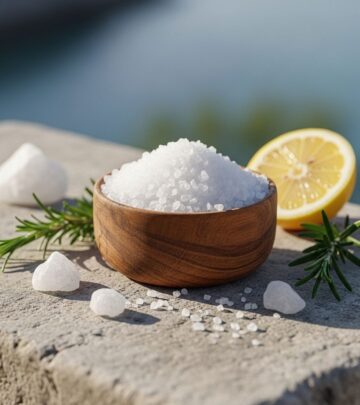21 Foods and Lifestyle Habits to Effectively Boost Testosterone
Enhance vitality with key dietary choices and routines for balanced hormones.

Low testosterone can impact mood, muscle strength, energy, and overall well-being. While testosterone therapy exists, research and tradition both show natural remedies and lifestyle adjustments can help boost testosterone production safely and effectively. This evidence-backed guide explores 21 foods and key lifestyle habits that support healthy hormone balance and answers frequently asked questions about testosterone.
What Is Testosterone and Why Is It Important?
Testosterone is a crucial male sex hormone produced mainly in the testes (and, to a smaller extent, in women’s ovaries and adrenal glands). It governs reproductive health, builds muscle, regulates mood, and affects bone strength. Naturally, testosterone levels gradually decline with age, but lifestyle factors, diet, stress, and sleep also play a pivotal role in maintaining hormonal health.
Signs of Low Testosterone
- Low libido or reduced sexual function
- Unexplained fatigue and decreased energy
- Loss of muscle mass and increased body fat
- Mood changes such as depression or irritability
- Reduced bone density
If you notice several of these symptoms, consider seeking medical advice for hormone testing.
21 Foods That May Help Boost Testosterone
Your diet plays a central role in regulating hormones, including testosterone. These foods are shown to support healthy testosterone production through nutrients, antioxidants, or specific hormonal effects.
1. Egg Yolks
Egg yolks are rich in vitamin D, cholesterol, and protein, all vital for testosterone synthesis. The body converts cholesterol in egg yolks into steroid hormones such as testosterone, making them an excellent dietary choice in moderation.
2. Tuna
Tuna is loaded with vitamin D, a key player in testosterone regulation and overall health. Regular intake may support testosterone naturally and offers additional benefits like heart-healthy omega-3 fatty acids.
3. Fortified Cereals
Many breakfast cereals are fortified with vitamin D and B vitamins, both of which support testosterone production. Choose whole grain, low-sugar options for best results.
4. Oysters
Oysters are famous for their exceptionally high zinc content—this mineral is essential for male hormone health. Zinc deficiency is directly linked to low testosterone levels, so shellfish can be a potent addition to your diet.
5. Shellfish (Crab & Shrimp)
Shrimp and crab contain zinc, selenium, and other minerals beneficial for testosterone production. Include these periodically in your meals for a mineral boost.
6. Beef
Grass-fed beef (lean cuts) is an excellent source of zinc, iron, and certain amino acids that support testosterone synthesis. Avoid high-fat, processed meats for best results.
7. Beans
Legumes such as chickpeas, lentils, and black beans contain both zinc and vitamin D. In plant-based diets, beans are an excellent alternative protein and micronutrient source.
8. Pumpkin Seeds
Pumpkin seeds are loaded with zinc and magnesium—two minerals directly tied to testosterone regulation. They’re easy to sprinkle onto salads, smoothies, or granola.
9. Pomegranates
Pomegranate juice may help lower stress hormones and support the body’s natural testosterone production. Some studies found drinking pomegranate juice increased testosterone and improved mood in both men and women.
10. Extra Virgin Olive Oil
Switching from vegetable oils to extra virgin olive oil can yield hormone health and overall wellness benefits. Olive oil’s healthy fats and antioxidants assist in keeping testosterone levels optimal.
11. Ginger Root
Ginger has centuries-old traditional use as a natural fertility and testosterone booster. Preliminary research reports higher testosterone and enhanced sperm health in men who supplement with ginger extract.
12. Garlic
Allicin, a compound found in garlic, may reduce stress (cortisol) levels, indirectly supporting testosterone production. Include fresh garlic in your savory dishes for a flavorful boost.
13. Leafy Greens (Spinach, Swiss Chard)
These greens are rich in magnesium, which plays a crucial role in testosterone production. Magnesium helps block the binding of testosterone to sex hormone binding globulin (SHBG), making more testosterone available in the body.
14. Onions
Onions contain antioxidants and sulfur compounds that support hormone health and may increase testosterone when consumed regularly.
15. Avocados
Avocados offer healthy monounsaturated fats and vitamin E, both necessary for maintaining optimal hormone levels. They also provide B vitamins for energy and metabolism, crucial for overall wellness.
16. Blueberries
These antioxidant-rich berries combat oxidative stress, a leading factor in hormonal imbalance. Flavonoids in blueberries may help protect testosterone-producing cells.
17. Bananas
Bananas contain bromelain, a natural enzyme shown to support libido and possibly help the body produce testosterone more efficiently.
18. Brazil Nuts
Extremely high in selenium—an essential nutrient for hormonal health—Brazil nuts may support the body’s ability to create testosterone. Just 1–2 nuts a day meets daily selenium needs.
19. Fenugreek
Fenugreek is an herb traditionally used to increase libido and testosterone. Some clinical studies find fenugreek supplementation supports healthy testosterone in men.
20. Dark Chocolate
Minimally processed dark chocolate includes antioxidants, magnesium, and mood-lifting compounds that can support testosterone when eaten in small amounts.
21. Salmon
Loaded with omega-3 fatty acids, vitamin D, and protein, wild-caught salmon is a top food for hormone balance, supporting both testosterone and heart health.
Foods to Avoid or Limit to Prevent Low Testosterone
- Excessive soy products (can mimic estrogen activity in the body)
- Flax seeds (high in lignans, which lower free testosterone)
- Licorice and mint (contain compounds that may suppress testosterone)
- High amounts of processed sugars and sweetened beverages
- Excessive alcohol (shown to directly reduce testosterone and impair the hormone system)
- Highly processed or hydrogenated vegetable oils
- Soda and excessive caffeine/green tea
Essential Lifestyle Changes for Healthy Testosterone
In addition to smart nutrition, daily habits play a crucial role in hormone regulation. Here are five research-backed adjustments for optimal testosterone:
1. Regular Exercise—Especially Resistance Training
- Strength training (weightlifting, resistance bands, or bodyweight exercises) is the single most potent lifestyle factor to increase testosterone. Higher volume and moderate–high intensity elicit an acute rise in testosterone, with levels sometimes remaining elevated for up to 48 hours after a session.
- Cardiovascular (aerobic) exercise is also beneficial, especially for overweight or obese individuals, and sustained programs can raise basal testosterone levels while reducing fat mass.
- Aim for at least 150 minutes of moderate cardio plus 2–3 resistance sessions per week.
2. Minimize and Manage Stress
- Chronic stress increases cortisol, the stress hormone that actively suppresses testosterone production.
- Practices like meditation, mindfulness, yoga, and deep breathing reduce stress and support hormonal balance.
- Socializing, laughter, and reducing your exposure to negative environments also help maintain steady testosterone.
3. Optimize Sleep Quality and Duration
- Testosterone levels rise during deep sleep and peak during REM cycles; sleep deprivation reduces testosterone by up to 15% for every lost hour of rest.
- Most adults need 7–8 hours of quality sleep per night for proper hormone regulation.
4. Ensure Sufficient Micronutrient Intake & Consider Supplements
- Critical vitamins and minerals include zinc, vitamin D, B vitamins, vitamin A, C, and E, & magnesium.
- Supplements may help if your diet lacks these nutrients, especially in those with restricted sun exposure or dietary limitations.
- Consult a healthcare provider before starting any supplement, especially long-term or high-dose regimens.
5. Limit Toxin and Chemical Exposure
- Certain chemicals in plastics (like BPA), canned foods, and industrial goods can disrupt hormone production.
- Choose glass or stainless-steel containers for food storage and minimize use of products with questionable additives.
FAQs About Boosting Testosterone
Q: Does high protein intake lower testosterone?
A: Excessive protein (especially from supplements) may lower testosterone in some individuals, but a well-balanced protein intake is crucial for muscle synthesis and hormone regulation.
Q: Should I take testosterone supplements?
A: Over-the-counter testosterone boosters vary in safety and efficacy. For individuals with medically low testosterone, prescription hormone therapy may be necessary—but consult a medical professional before any supplementation. Unmonitored use can result in harmful side effects.
Q: Which vitamin is most important for testosterone?
A: Vitamin D has the most robust evidence for direct support of testosterone production, followed by zinc and magnesium.
Q: How quickly can lifestyle changes affect testosterone?
A: Some changes, like improved sleep and resistance training, can increase testosterone within days to weeks. Dietary adjustments and weight loss show results over several weeks to months.
Q: Can women benefit from these tips?
A: Yes. While women require lower testosterone than men, balanced hormone levels are essential for mood, energy, libido, and metabolic health in both sexes.
Testosterone-Boosting Foods Table
| Food | Key Nutrient(s) | Role in Testosterone Health |
|---|---|---|
| Oysters | Zinc | Essential for testosterone synthesis |
| Egg Yolks | Vitamin D, cholesterol | Building blocks for hormones |
| Beans | Zinc, vitamin D | Plant-based hormone support |
| Pumpkin Seeds | Zinc, magnesium | Supports natural production |
| Tuna | Vitamin D, omega-3s | Boosts hormone levels and reduces inflammation |
| Ginger | Antioxidants | Improves hormone function, sperm quality |
| Olive Oil | Healthy fats | Optimizes hormone signaling |
Warning: When to Seek Medical Advice
If you experience persistent fatigue, mood changes, sexual dysfunction, or unexplained changes in body composition, consult a healthcare professional. Self-treatment of low hormones without guidance can cause side effects and mask underlying health problems.
Key Takeaways
- Testosterone naturally declines with age, but lifestyle and dietary factors have a significant impact.
- Focus on whole foods that provide vitamin D, zinc, magnesium, and healthy fats.
- Strength training, stress management, quality sleep, and toxin avoidance are critical for hormone balance.
- Supplements should support, not replace, a nutrient-rich diet and healthy habits.
- If in doubt, consult with a medical professional to ensure safe, personalized strategies for hormone optimization.
References
- https://www.stylecraze.com/articles/testosterone-hair-loss/
- https://www.stylecraze.com/articles/boost-testosterone/
- https://pmc.ncbi.nlm.nih.gov/articles/PMC7739287/
- https://www.webmd.com/men/ss/slideshow-low-testosterone-natural-boost
- https://pmc.ncbi.nlm.nih.gov/articles/PMC10689274/
- https://www.frontiersin.org/journals/physiology/articles/10.3389/fphys.2025.1512268/full
- https://tau.amegroups.org/article/view/33647/html
Read full bio of Sneha Tete










